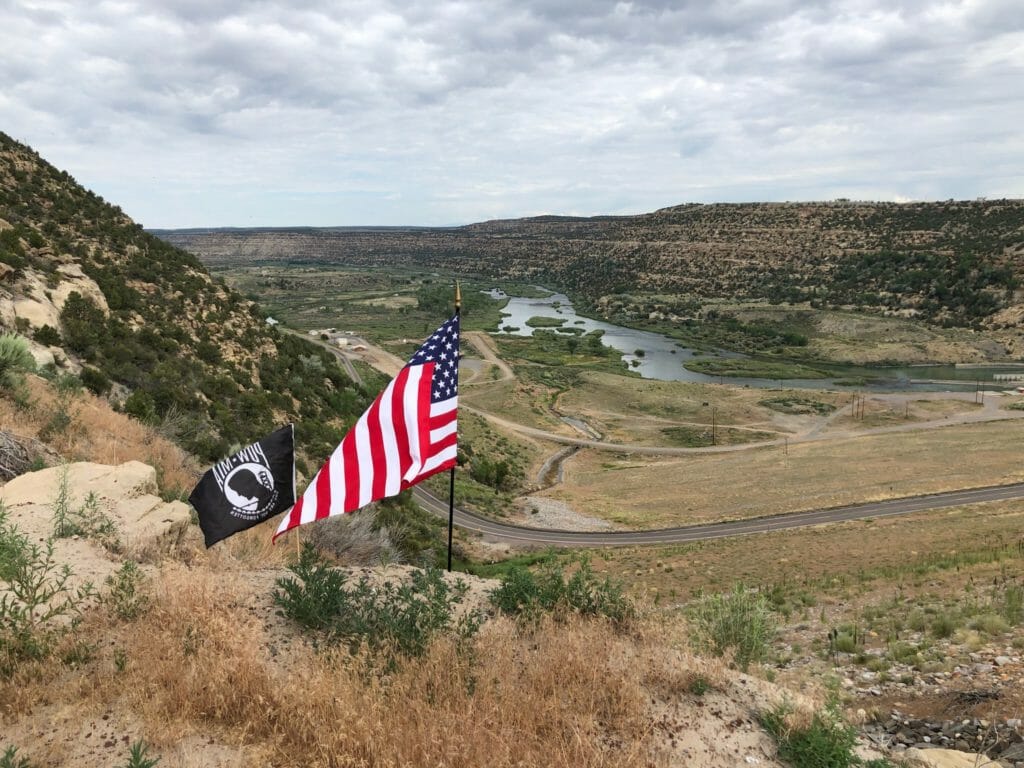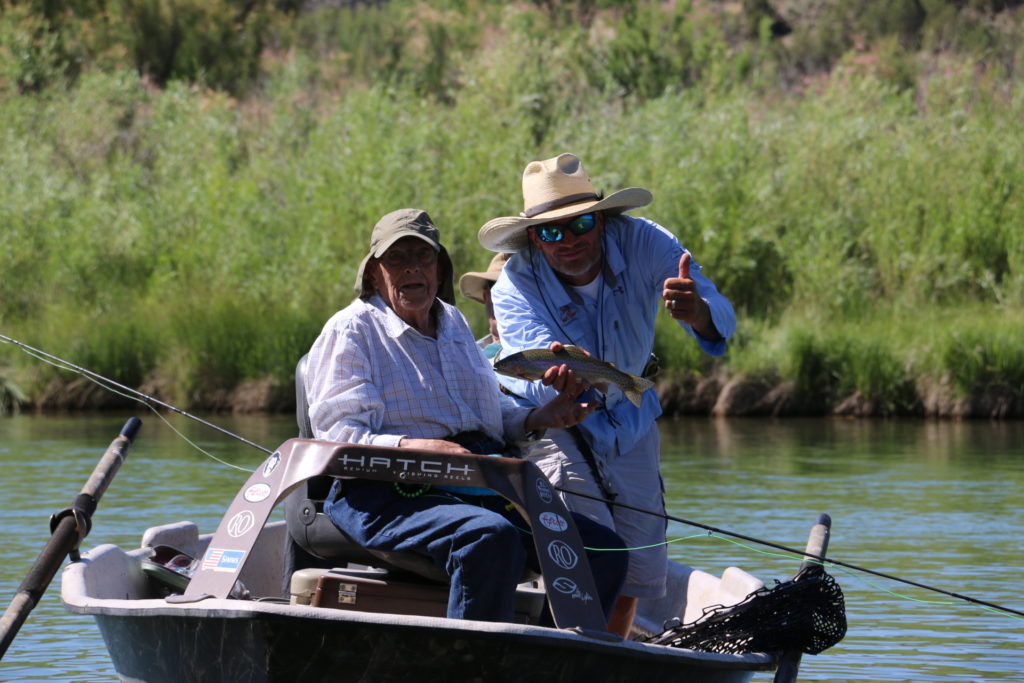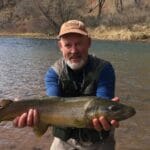Paul Zimmerman teaches fly tying to military veterans. At 91 years of age, and as the sole care provider for his wife Patti, he is reluctant to leave her alone. He conducts all of his lessons at his home, an arrangement that’s also convenient for his students, who are often most comfortable with one-on-one engagement and places where calmness and quiet prevail.
“Our situation was different from Vietnam,” says Zimmerman, a Korean War vet who was stationed in Pusan from 1953 through 1954. “Our base was very secure and far from the action. You could get a full night’s sleep. In Vietnam, they could wake up any morning and be surrounded. They never felt safe. They need to feel safe now.”

Zimmerman is a participant and volunteer with the Cheyenne Program of Platte Rivers Veterans Fly Fishing, a non-profit group providing no-cost instruction in fly fishing, fly casting, fly tying, and rod building to military personnel.
Due to the relatively high and varied military population in northern Colorado and southern Wyoming (essentially the Platte River drainage), the organization was founded on the necessity of focusing not only on this geography, but the needs of the entire military population there, regardless of status.
While fishing and at the lodge, they shared stories of combat, against trout (of course), the Viet Cong, the government (for some), peace activists (for some), deadly jungle creatures such as tigers and bamboo vipers, and, most significantly, their own emotions.
This year’s Fourth of July holiday was Platte Rivers’ inaugural Honor Float, an all expenses-paid three night, two-day guided fishing trip at the Soaring Eagle Lodge on the San Juan River. The brainchild of Joe O’Connor, the president of the organization, the float is modeled after the Honor Flight concept—in which non-profit organizations fly veterans of specific conflicts to Washington, D.C., where the vets are celebrated and given tours of the memorials to the wars in which they served.
Similarly, the 2019 Honor Float honored 20 veterans from the Vietnam and Korean Wars (2020 and 2021 floats will honor veterans from the Gulf War and 9/11 conflicts, respectively). Along the route from Cheyenne to New Mexico, the group that included Paul Zimmerman as its one Korean soldier was shepherded by police escorts and honor celebrations. As the boats fanned out to the San Juan’s riffles and runs, the vets were together in spirit if not in space.
While fishing and at the lodge, they shared stories of combat, against trout (of course), the Viet Cong, the government (for some), peace activists (for some), deadly jungle creatures such as tigers and bamboo vipers, and, most significantly, their own emotions.
The vets I spoke with said they were touched by the Honor Float’s simple acknowledgements of their sacrifices. At the same time, they considered their service to be little more than honoring their responsibilities to jobs they had accepted. Try as I might, I can’t square their humility with the infinite burden their country demanded, and still demands, that they carry, costs they bear so faithfully that the rest of us bear minimally, if at all.

As an outside observer, it’s impossible to meaningfully express the awe I felt in the presence of such great people. I know that I will never gain more than a menial comprehension of what they went through, so it will have to suffice that the most I will understand is that I will never understand at all. Duane Cook — who along with Dean Miller of Loveland, Colo., Bruce Peck of Windsor, Colo., and Roger Thimm and Dale Blakely of Cheyenne, founders of Platte Rivers Veterans Fly Fishing – graciously let me off the hook by saying that acknowledging our lack of understanding is all soldiers ask for in the first place.
Thanks to Platte Rivers Veterans Fly Fishing, I’m reminded that “The Water Holds No Scars,” which is not only a simple factual statement, but the guiding principle of this wonderful organization. Throw a rock into a river, and you’ll understand what it means. Release a trout and see how quickly it disappears. Hear the swishing of your cast, and notice how the laughter of nearby anglers replaces it after your line falls lightly upon the current. The water blends and absorbs – past and present, remembering and forgetting, birdsong and silence. Try to distract yourself from selecting the perfect imitation from your fly box, tying it to your tippet, or removing it from a willow snag.
You can’t, but that’s fly fishing. And for many a veteran, that’s enough.
Toner Mitchell is the water and habitat director for Trout Unlimited in New Mexico. He lives and works in Santa Fe.



